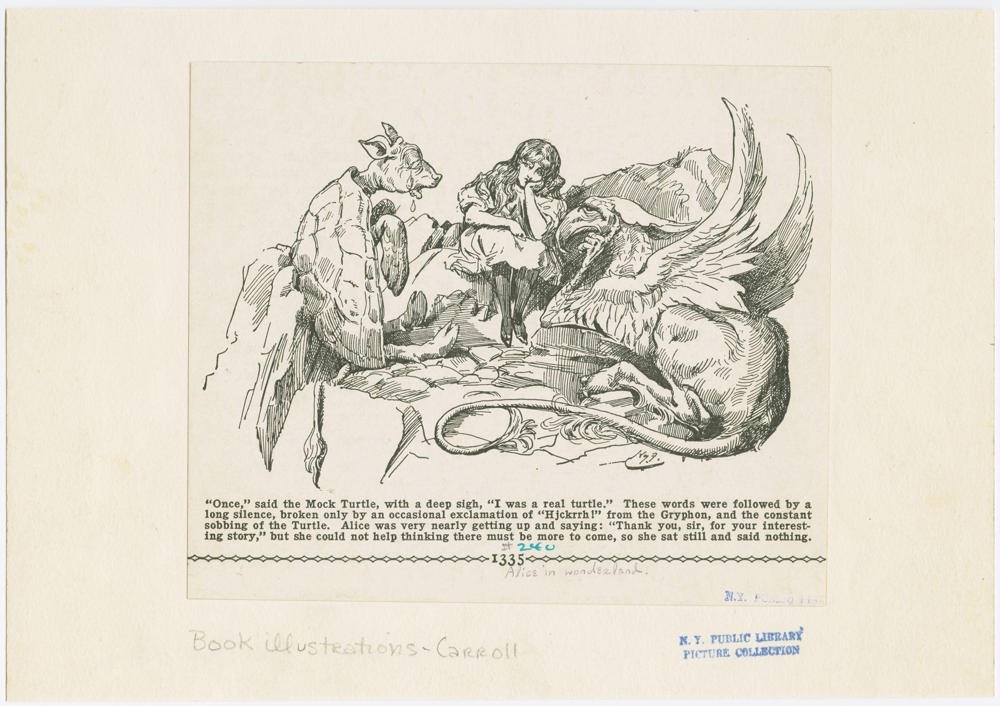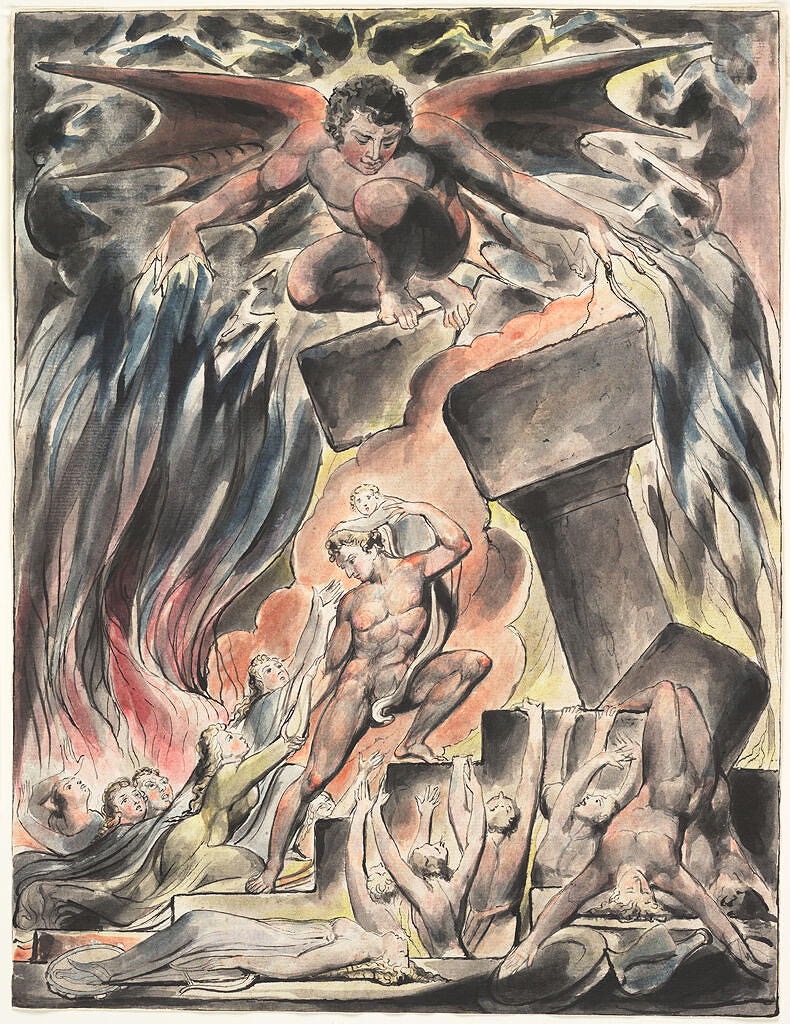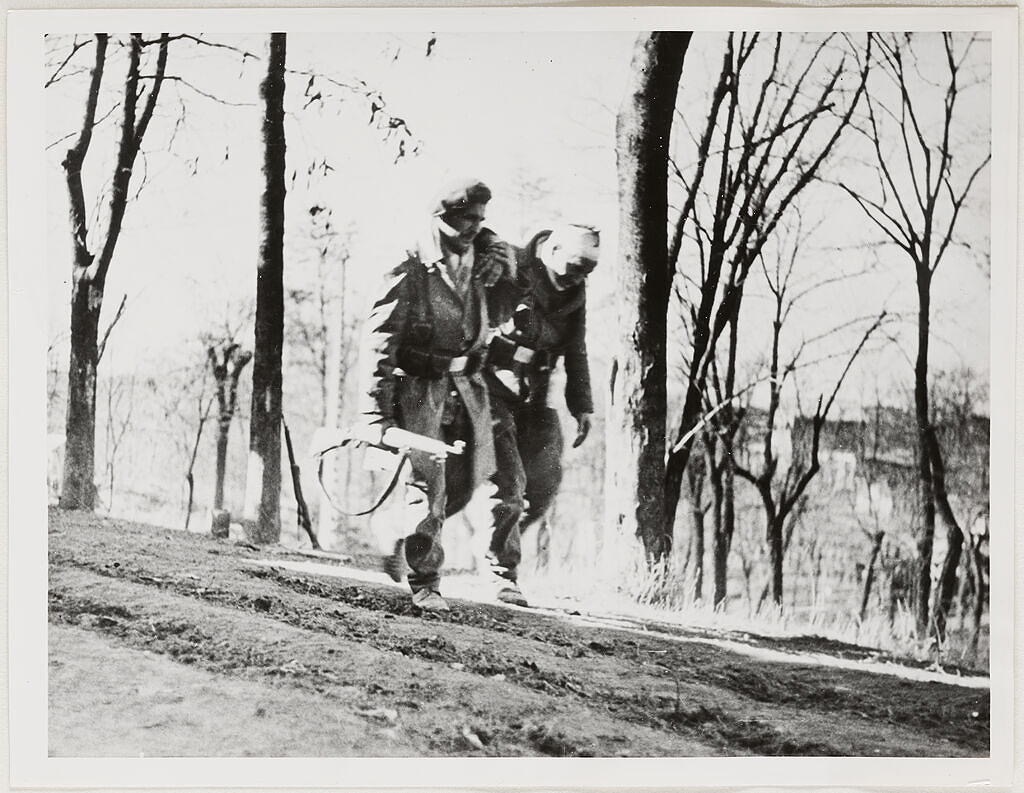Infliction

William Hogarth:
The Punishment Inflicted on Lemuel Gulliver (1726)
"Good riddance to abysmal governance."
Only apprentices ever opt to Inflict difference upon others. Ten thousand more effective ways exist, so only the deeply inexperienced ever resort to Inflicting change. The more insistent the Infliction, the less effective, and the shorter-lasting the attempted change. Those who seriously believe they can command while others will obey only successfully delude themselves. It's a sad and sorry spectacle to observe, especially when the Inflictor convinces themself that they're acting in the Inflicted's best interest. Such attempts inevitably fall far short of an actual initiative. They might initially appear to produce real difference, but whatever initially appears to stick proves to be short-lived. Considerable undoing might result, but the desired change will quickly dissolve and disappear. Further, the Inflictor will ultimately fall much further than they imagined they might rise had their initiative proven effective. Those afflicted by the attempt will be absolved of all accusations against them when they resisted. The opposition will produce the only heroes. The Inflictors will make themselves infamous.
Fresh from a multi-day affliction, an epic back spasm that left me bedridden and aching, I carry a fresh appreciation for change.
SacredSarcasm

John Tenniel: "Once," said the Mock Turtle, with a deep sigh,
"I was a real turtle."
Illustration from the 1911 Edition of Alice in Wonderland (1911)
"Congratulations, or something, Mr. President! Grow a pair!"
If anything distinguishes Democracies from all other forms of governance, it must be the freedom to shamelessly mock itself in public. The chief problem with authoritarianism lies in its innate humorlessness. It takes everything, especially the microscopically irrelevant, seriously. It presumes to make daily proclamations insisting upon the most fantastical absurdities. It continually assaults common sense and its citizens' own experience, attempting to override it with idiotic ideology. One's left wondering what could possibly come next. Our current authoritarianism infection began with a full frontal assault on decency. If an unwinnable opponent were ever proposed, common decency would seem the perfect choice. Only one so thoroughly entranced in their own self-importance could ever seriously consider making decency their primary enemy. Of course, they had to ineptly hide their real agenda. This tactic barely worked before utterly undermining itself, as any founding father could have easily predicted it would, for we are not that serious a society. We were founded upon the sacred proposition that all people were created equal, which, roughly translated, means in practice that everyone holds the more or less equal responsibility to be the butt of their fellow citizens' jokes. If nobody stands above the law, nobody stands above the next derisive punchline, either.
Our society has evolved into an entertainment medium.
BadBack

Jacques Callot: Beggar on Crutches and Wearing a Hat,
seen from Back, plate five from The Beggars (c. 1622)
" … I'd be aching, too, if I had to put up with all I put it through."
I have not had a BadBack since I finally submitted to that long-deferred back surgery more than twenty years ago. Before that, I suffered from a standard stenosis and a lingering adolescent denial in more or less equal proportions. The physical difficulty was easily resolved with a straightforward surgery. The denial required more than a decade of concerted effort and considerable suffering to finally resolve, which was achieved by my merely consenting to the long-averted surgery. I tried every non-surgical alternative but mostly embraced suffering as the antidote. I got very, very good at suffering because I was already a near master at denial. I could work through that white hot blindness that waves of pain brought, essentially blocking vision. I could stand and deliver while otherwise basically unconscious. I also experienced public collapse like that especially memorable time when a blinding wave of pain disabled me while I was strolling down Lower Broadway in New York City. Miles from my hotel room, I could neither stand nor sit comfortably. That one scared me.
It took a bout of shingles to finally convince my doctor and me that I had successfully tried and worn out every possible alternative.
Restarting

Unknown, After Jean Restout: Saint Hymer in Solitude
(c. 1735)
" … whether or not it accomplishes anything else."
Restarting my machine has become the first step when producing another story. This amounts to ritual now, in that it reassures more than guarantees anything. If I don't Restart first, I might increase the risk of my machine crashing before I've finished, and then have to recreate lost parts. Writing to post involves using five or six different applications combined with plenty of cutting and pasting. I accomplish all this on my thirteen-inch MacBook Air. The small screen means I cannot just grab and drop most copyings. I need to switch displays to change applications. I save before switching between any two applications, so I'm also continually saving in addition to the constant cutting and pasting. I'm uncertain which of these operations will eventually result in crashing my machine. Usually, my blog application crashes first. I try to save something in it, and it doesn't respond. I pull up the ever-useful ForceQuit display, which usually indicates that RapidWeaver's frozen again. Then, I can ForceQuit that application and either reopen it or choose to execute another full Restart. The full Restart takes a few minutes, as each application needs to reopen. Sometimes, depending upon where the crash finds me in the process, I have to copy the contents of something like a Facebook post over and into Pages for safekeeping during the subsequent Restarting; otherwise, I'll lose whatever I've started there.
In these ways, my writing has become an exercise in paranoia.
Improv

Vasily Kandinsky: Improvisation No. 30 (Cannons) (1913)
" … as if his audience was supposed to care."
It might be essential to remember that our incumbent is an actor. Actors train in and practice the art of deception. They pretend. They might become most skilled at pretending to be themselves, an identity that typically gets garbled in such practice. The others they become skilled at pretending to be are unavoidably incomplete, for nobody, however experienced, has ever managed to thoroughly portray somebody else. There are too many edges to consciously cover. To compensate, skilled actors amplify a few of the more prominent traits of the ones they portray, thereby accentuating some of their more recognizable aspects. They become identifiable by overplaying some characteristics. Voice impersonators tend to employ a few key phrases associated with the character they play. This produces a reinforcing association, whether or not their voice very accurately mimics their target's. John Wayne was apparently the only actor whose character employed the term "Pilgrim" in their dialogue.
Actors train in their trade by engaging in Improv.
Weekly Writing Summary For The Week Ending 04/24/2025

Henry Fuseli: Milton Dictating to His Daughter (1794)
Gallery Notes:
This painting by Swiss artist Henry Fuseli depicts 17th-century English poet John Milton, who became blind in his 40s, dictating his epic poem Paradise Lost. His daughter transcribes his words while another woman listens intently as she sews. A forerunner of the Romantic Movement, Fuseli created drama through chromatic contrast. A cool light illuminates the rosy-cheeked women and casts deep shadows around Milton’s ghostly figure and face. Fuseli created this painting for his Milton Gallery, a self-run enterprise that showcased the artist’s Milton-inspired works. While this entrepreneurial venture failed commercially, it raised Fuseli’s prestige and visibility as an artist.
Given The Current Volume of Obvious Imperfections
One week each year, perhaps a few days longer, the Villa's yard takes on the Garden of Eden Scent. The apple blossom sweet of the two enormous ornamental crabapples, with the magenta one dominating, combine with the budding lilacs. When we returned from our exile four years ago this Spring, I planted five fresh lilac bushes along the back fence. They were healthy three-footers then. Now, they're topping seven feet and bursting with blossoms. They provide a sampling line where The Muse and I can sink our snouts deep into each bush's blossoms to experience the subtle differences between the various varieties. We added fish to our bubbling backyard pond this week, and I immediately felt the difference their presence brought. I suspect the neighborhood raccoons have already discovered this addition, as somebody tipped over the fountain pump on two successive nights. My lawnmower replacement for the one recalled as a potential fire hazard arrived just in time to counter the emerging lawn, and the carpenters completed installation of the front porch beadboard ceiling. I could proclaim that all's right with the world, but there's still a considerable lot that's not right yet. I feel reassured that this world can pull off a Springtime like this, even given the current volume of obvious imperfections.
Tech

Nan Lurie: Technological improvements (1937)
Works Progress Administration
"We thrive exclusively on the promise of another paradigm shift …"
Technology serves as both our enabler and enslaver. It encourages hope and creates the lion's share of the frustrations we daily struggle to cope with. If ever a human invention exemplified the notion that there's no such thing as a free lunch, Technology holds that distinction. It giveth while also taking away. It encourages before disappointing. It seems to be continually, constantly annoying. On my better days, I find ways to fiddle with it less. On my worst days, it can hold me completely in its thrall. I curse its presence and pitch a fit when I cannot access it. It improves life immeasurably, by which I mean unavoidably. It creeps into routines almost unobserved, then won't let go for anything.
It seems I can barely remember my life before, if I had a life before Tech.
Presententions

Master of the Beheading of St. John the Baptist:
Allegory: Combat of Animals in the Presence of Man with Shield (1515/20)
"Everything except the lilac garden seems twisted and broken."
I inhabit a suddenly disorienting time when usual expectations no longer reliably produce. Emerging realities seem wacky. Our incumbent leads exclusively by whim. This might entertain He With A Negative Attention Span, but it exhausts the rest of us. He appears wholly presumptuous, as if he targets every one of his mindless proclamations for The Ages. I sense he, or more likely his fundamentalist followers, thinks his "reign" biblical and, as usual, the most devout take the allegories literally. This produces predictably ridiculous reactions, the sole predictable part of his many machinations. They always go sideways and are often rescinded after inducing some fresh, otherwise unnecessary, chaos. Some speculate that chaos must be the underlying purpose, keeping opponents off balance. This almost works, except it seems to off-balance the perpetrator more than the opponents. Consequently, the loyal opposition appears to be gaining the upper hand. As usual, the incumbent seems only capable of undermining his own plans, assuming he even has any plans.
He seems to live by presumption.
Serfdom

Jules Breton: The Song of the Lark (1884)
"Let us choose more wisely going forward after we finally impeach this bastard."
The problem with monarchies must be that they require vast numbers of peasants. All that idling demands many waitpeople, cooks, gardeners, butlers, maids, footmen, and vast numbers of serfs, peasant farmers who live at or slightly below subsistence so that their monarchs might live as kings. The overhead involved seems unreasonable to us raised in more liberal circumstances. How much better might it be if everybody could become more self-sufficient and at least earn and pay a living wage? People could trade rather than indenture, choose instead of becoming chattel. This tension between the monarchial and liberal worlds has peaked lately, with a self-proclaimed dictator elected to lead the world's oldest liberal democracy. Conservatives, traditionally those most enamoured of market traditionalism, for some unknown reason, embraced him who became our first self-proclaimed dictator. Dictatorships and monarchies seem identical at some level, for they both require unreasonable numbers to perform as peasants.
The Road To Serfdom, a popular book from the 1940s by Austrian economist Friedrich Hayek, described how excessive government control of economic decision-making and central planning inevitably lead to tyranny.
GigaMa

Xiang Shengmoe:
Crab-apple Blossom from a Flower Album of Ten Leaves
(1656)
"May she fondly remember her great-grands."
The Muse's post-cancer treatment includes five years of surveillance involving frequent doctor visits and occasional specialist consultations. No reason for serious concern has yet emerged from this scrutiny, but the inquiry continues for at least another eighteen months. She could have chosen to see this specialist via tele-health. Still, she decided it might be useful to visit in person, if only to stay in touch with someone offering more experience than her local practitioner can. This means a short trip to what I'll forever call Sleazeattle, an overnight in a grossly over-priced hotel, and associated adventures. Ask me what gives me Hope, and I'll respond that the future renders me hopeful. When the present seems filled with hopeless boobs conspiring to make their lives Hell, the future never gets even distantly involved in those shenanigans. What helps me cope with how things seem to be now? Two things: the shadow of my future and the ability to roam around a bit in my present. I'm a dedicated homebody, but The Muse insists I get out into The World. I rarely regret these excursions, though I usually faunch beforehand in anticipation.
The Muse opted to see this specialist in person because it gave her an excuse to see her great-granddaughter Really. (Really's a family name! Nobody's ever a family member until after they've been given a family name to fix the shortcomings their original inevitably exhibits.) Her real name doesn't matter to family. To us, she's Really. The Muse had seen her a few months ago, but we do not live nearby, so she's already three times older than she was on that first visit. I'd never met her, and though I'm no blood relative, I still consider her my great-granddaughter. Great-granddaughters provide a reason to feel hopeful, regardless of current conditions. A GGD has an upside, which is the one thing no great-grandfather can realistically provide. My future's been shrinking constantly since the day I was born, leaving me ever further behind on the upside portion of the program. I'm more than physically shrinking. A GGD provides an extension into a world I will never know. That's hopeful for me.
The ride over was typically remarkable.
BowSaw

Jack Gould: Untitled (two men sawing large logs) (c. 1950)
" … designed to preserve enthusiasm rather than undermine it."
Yesterday, while the rest of the world was busy going to Hell, I rediscovered an often unused corner of my little Heaven here. I'd tried and failed to construct a little pop-up-paint-tent on the front of the garage to shade me while I strip and repaint some long trim boards for our front porch restoration. I'd drilled holes and set eye hooks, thinking I could string up a tarp to serve as the roof, but I was short one anchor point. I figured I could screw a left over cut-down seven-foot two-by into a paver then further weigh that down with a concrete cornerstone, but the screws failed, so I folded up the tarp and set that project aside. My puttering efforts often encounter such blockages because, despite my advancing age, I remain largely ignorant about calculating forces. Combine that innocence with at least an equal ignorance of how such problems are typically solved, and I have an explanation for why my grand schemes so often initially fail. I do not take these failures personally. I consider my attempts experiments, even though I suspect that someone out there could solve such problems in their head without even resorting to pencil and paper. I almost always eventually resolve such difficulties, though usually in ways I couldn't have imagined before serially failing. The universe backs me into most of my successes.
That problem set aside, I attempted to resolve another small dilemma.
FreshStart

Corita Kent (Sister Mary Corita): fresh bread (1967)
Inscriptions and Marks:
Signed: l.r.: Corita
(not assigned): Printed text reads: Fresh bread, a secret agent / A jug of wine a loaf of bread and WOW / What kind of a revolution would it be if all the people in the whole world would sit around in a circle and eat together? [heart shape] / What you seek in vain for half your life, one day you come full upon, all the family at dinner. Thoreau
—-
"I prefer the quality only ignorance ever dispenses."
I've grown weary of the continuing anticipation, the fantasies pretending to qualify as policies, and the inescapable idiocy masquerading as stable genius. This will never become genius, regardless of how many unqualified commentators try to convince us. We will never be persuaded. If anybody does, we possess the closest thing to common sense anybody ever has. I'm not casting aspersions, but those who don't understand won't. It's just not in them. Whether through willful ignorance or chance, they were never invited to the dance. Yes, they hold grudges. They do not seek justice, but vengeance. They flee from decency, apparently the only toxic substance likely to do them in. I fear that too close an association might render me like them. I worry that even watching them so closely has been rendering me stupid.
Yet I do not want to miss any subtle shift in strategy.
Weekly Writing Summary For The Week Ending 04/17/2025

Jack Gould: Untitled [mother and daughter at table, writing] (c. 1948)
We Prefer Homemade
Our small city has been hosting Town Hall events featuring our absent congressional representative because we're worried, and he seems uninterested or unable to facilitate a gathering to reassure us. Though we try, we don't really reassure each other when we gather. We show up, by which I mean we bring our natural diversity, as if we intended to annoy each other by displaying it. Only in a cult, where everybody's too terrified of being identified as different, do we gather without fear of disturbing each other. The usual sensitivities always come, as if to highlight our shared dilemma. We ache to be community, but we dare not insist upon conformity. E Pluribus Unim, as I said somewhere this week, insists we're from different root stock, not similar. The miracle of our form of government was never its ability to engender anything even distantly resembling efficiency. Its stated purpose was to promote apparently inefficient diversities to surprisingly produce more than the sum of their components. This strategy has worked for approaching two hundred and fifty years. The efficiency experts lack the calculus to reduce this possibility into anything resembling a satisfying formula. As I also said somewhere this writing week, those who pay to play cannot understand those who would never pay for or play with any of the freedoms we enjoy. We're freeloaders where freedom's concerned. To purchase it defiles it. We prefer homemade.
Desperation

Francisco José de Goya y Lucientes:
Fool’s Folly, from Disparates (1816–19, published 1877)
"He was never primed to contribute what success always requires."
The unmistakable scent of Desperation accompanies every proclamation and every action initiated by this goofy administration. It's as if they know everybody's already on to them. They persist, perhaps bravely, failing to achieve even a threshold of believability. They have not managed to convince themselves. They cling together around their largely absurdist stories like proverbial rats clinging to flotsam, and hardly even deserving that hackneyed old allegory to describe their condition. They present as pitiful, yet they still seem to produce fruitful disruption. As the courts start kicking in, their explanations become even more fantastical. We knew they weren't serious from the outset, with their assault on decency and efficiency, neither of which parsed to anything other than fantasy: abuse, fraud, and waste. Their “savings” cost more than they saved. Their police for their police state seems comical, cosplay goons performing administrative errors. International incidents initiated by middle-of-the-night tirades: the usual.
The more paranoid point out that they follow a plan, published in paperback form, so the rest of us can follow along.
Crumbling

William Blake: Thy Sons and Daughters Were Eating and Drinking Wine (The Book of Job),
Alternate Title: Job's Sons and Daughters Overwhelmed by Satan (1821)
"The incumbent will richly deserve his comeuppance."
A hundred days into our incumbent's second term, it's difficult for me not to feel as though I'm stuck somewhere in the Book of Job. You will remember Job as the unfortunate believer whose life inexplicably turns to shit as if he had been a sinner. True belief in anything doesn't immunize anyone from very much of anything. Some things happen regardless of anyone's faithfulness. Other things might occur due to misplaced belief. Belief in false premises or misleading promises can contribute to reversing fortunes, but belief itself can't independently be ascribed as cause. Other factors must intrude to produce results. In our case, our incumbent's abysmal second-term results seem easily ascribable to our incumbent himself. Whatever evil playbook he might have tried to follow, his performance so far shows him incapable of following any playbook. Investors have begun to publicly speculate that he's insane. Former supporters have started moving further away as he's again demonstrated his incompetence in practice.
As I've noted before, our economy was the world's envy a short hundred days ago.
Contemptible

Jean Audran: Minachting [Contempt] (1727)
"Such behavior transcends explanation and excuse."
Our incumbent was never careful. Oh, he took precautions, though even those seemed a little too loose or fast to ultimately evade detection. Most of his administration's business has been conducted on Signal®, an insecure and illegal platform upon which to conduct official business. Even in small things, he chooses lawlessness. He thumbs his nose at convention and decency with equal contempt. I'm unsurprised, then, that the sum of his efforts amounts to Contemptible. He holds decency in contempt as easily as he seems to revere evil. He seems to have been built backward from most people. He can't help but carry what most hold as internal out on his shoulders. He continually shares way too much information. He parses his world with a rusty potato peeler. He skins convention alive. It should be no surprise that he managed to prove himself Contemptible in the eyes of his sole Court of Last Resort, one he struggled, in his last administration, to stack with unfit judges owing him. They suddenly owe him no longer.
It's quite an accomplishment to offend people you paid to be your friend, but even paid-for justices have their limits.
CopingTactics

Ferdinand Olivier: Coping-stone (1823)
"I'd rather be crazy on my terms …"
Most people seem incapable of mustering a coping strategy, for we do not live all that strategically. We exist episodically, hoping against hope that we will somehow cope with even the more extraordinary stresses our times expose us to. I might insist that I've never seen a time like this, but I've survived stressful times before. Those times sure seemed dire at the time, and only in retrospect do they seem tame by any comparison. They terrified me to what I then understood to be my core. I didn't know beforehand if I could cope with those tensions and stresses. The tenacious unknowingness of those times caused the bulk of the damage. Others were more wounded than I, though it was not in any way a credit to anything I necessarily contributed. I proved fortunate under those circumstances, though I felt anything but lucky at the time. One never knows or, certainly, I never seemed to know at any point. Later, perhaps through speculation, I sometimes made sense of such experiences, though I suspect my stories about those times better qualify as fiction than accurate reportage. I chalk them up to one of my more prominent CopingTactics.
I write my cares away, though writing more often amplifies my cares than mollifies them.
Wealth_

Jan Luyken:
Man met de wereld in zijn armen laat kostbaarheden vallen
[Man with the world in his arms drops valuables] (1710)
"I will then settle in to become dirt myself."
April brings recovery. The messes accumulated over the receding winter demand attention, and rediscovery accompanies that attention. It always takes me some time to get started again, for engaging quickly becomes obligation. There will be scant respite until at least November. What begins as preliminary weeding blooms into mowing, planting, watering, fertilizing, and ongoing weeding. Some reconfiguring always intrudes, too, as something will have degraded since the prior growing season. This is a reminding time, for each April, I rediscover my Wealth, the single sure accumulated asset I will ever truly steward. I can't possibly own it, for it belongs more to the ages than it could ever belong to anybody. It represents my tacit legacy. Properly prepared so no inheritor will ever know precisely what they receive, though each might well find reason to revere me come future Aprils.
I measure my Wealth in tilth, the soil quality in my garden.
MagicalThinking

Master of the Die: Psyche,
Thinking to Appear More Beautiful...,
Opens the Fateful Box (1530–1540)
"We never were merely externalities …"
Our billionaires inhabit a radically different universe than the rest of us, for they exist without consequences. I might reasonably believe their existence must prove much more consequential if only because they command vast resources. In that narrowest sense, I might consent, but commanding vast resources says little about success. It might be that few things more reliably exceed than excess, but this says nothing about effectiveness. It's little or nothing to purchase something with one-hundredth of one percent of one's resources. The significance, however otherwise magnificent, tends to get lost in rounding on those sorts of transactions. A working man might struggle for a decade to finally save a downpayment for a modest home he'll never ultimately pay for. Still, he will have really accomplished something monumental in so doing. The lowly billionaire could buy and sell him ten thousand times without diminishing his wealth by a comparative dime, yet never once experienced success in the way that workingman does. Nor could they experience consequences because the workman risks everything to achieve his modest result, and the billionaire risks essentially nothing.
It's much more and different from idolatry to worship our billionaires' successes.
Weekly Writing Summary For The Week Ending 04/10/2025

Francesco Bartolozzi: April [Aprile] (18th century)
Attempting To Go It Alone
Following George McGovern's presidential campaign, self-described 'gonzo journalist' Hunter S. Thompson published a collection of his Rolling Stone campaign dispatches into a book titled Fear and Loathing On The Campaign Trail '72. I cut my teeth on Thompson's writing. For years, I carted around my Rolling Stones collection as one of my most prized possessions. Even with Richard Nixon involved, what constituted Fear and Loathing in 1972 would hardly spark a disinterested retch today. Our current incumbent's shenanigans have reset the bar for fear and loathing. Our closest neighbor now considers the United States to be a rogue state, the source of illegal guns, drugs, and every manner of contraband, rather than a trusted ally. We offer them lax border security.
I can't seem to help feeling as though my reputation has also been tarnished, even though I in no way supported any of this clown's initiatives.
Smugness

Ewald Dülberg: Self-Portrait (1917)
" … he sure seems clueless about how transparently he exposes his inner urges."
Woe be the leader without competent advisors. Those who go it alone and serve as their own coach have the fewest resources from which to draw. They must make much of it up, and nobody's imagination proves bottomless enough to adequately serve that need. Worse, though, comes when said leader considers themselves the smartest person in every room, for even if this belief were true, it would provide little benefit. Life is no more an IQ test than in is a race. Those who compete, especially those who compete with themselves, lose the most. Those for whom each decision becomes a competition probably have nothing left to lose. Our incumbent seems to suffer from these conditions. On those occasions when he listens to someone, he more often acts upon his misunderstanding of what they'd intended to advise. He usually swipes some notion out of context and then claims it is his original before swelling with a curious Smugness. It's a genuinely infuriating habit, an authentic abuse of power.
I suppose we each profoundly misunderstand the world in our own unique ways.
Weakman

Unknown Artist: Man of Sorrows (1465/70)
ABOUT THIS ARTWORK
Images such as the Man of Sorrows were intended to shock the beholder into repentance. The pristine condition, and even survival, of this hand-colored woodcut is primarily due to its having been pasted-like many early devotional woodcuts-within a protective book cover. This unique impression was discovered amidst the rubble during the bombardment of London in 1945.
"Good riddance to another so deluded he couldn't recognize his own weaknesses when they manifested."
——
Our incumbent fancies himself a strongman on the order of a mafia don. The most curious attribute of such strength might be how it reeks of weakness. It seems primarily defensive in nature, often co-optive, as it intends to do unto others before they have the chance of doing it undo them. These amount to preemptive retributions, a speculative getting even for something that hasn't really happened yet. In this manner, the self-proclaimed strongman exists as a Weakman instead, for the surest signs of weaknesses accompany the unselfconscious use of force as if it represented power. The truly powerful have little to show off, for their strength lies mostly in reserve, unperturbed by day-to-day existence. They live in peace, with deep respect for the absolute calamity that would have occurred had a Weakman been in charge. The weak might speak of law and order, but their rhetoric, carried to action, encourages righteous lawlessness, producing deeply defensive disorder.
The Weakman sees the world as zero-sum contentions sorted into clear winners and obvious losers.
Insanity

Adolph von Menzel:
Studies in the Insane Asylum (1844)
"We never know how to respond congruently."
Ordinarily, politics entails differences of opinion. It's different than this in the case of our current incumbent. There, realities seem to conflict. He and his minions deny the existence of verifiable conditions and assert the existence of clearly delusional ones. He exercises uninformed power. He primarily exercises non-existent powers. He proclaims stuff that could never be objectively excused as in any way related to truths. He holds convictions that only the more deluded conspiracy theorists ever seem convinced, then threatens and even exercises retribution against anyone disagreeing or, to use his words, "defying" him. Since when has a difference of opinion warranted such a response in this country that first championed freedom of speech, religion, and political conviction? Disagreement doesn't constitute a crime here. We have long revered dissent as one of the purest forms of patriotism, indeed nothing deserving any form of political retribution.
We teeter on an edge more perilous than mere politics.
WhollyUnlawful

Jean François Janinet: M. de Lafayette Arrests a Man for the Unlawful Hanging of a Thief (24 May 1790)
Book Title: Gravures Historiques des principaux événements depuis l'ouverture des Etats
[Historical Engravings of the main events since the opening of the States]
(1789?)
"Keep our Constitution out of the bedroom and the … board room out of our legislature … "
The Baby Boom Generation might have been the most scofflaw in history so far. We tended to obey the laws we agreed with and ignored those we didn't. Much of the difficulty might be reasonably assigned to a series of absolutely ridiculous laws, which, in my humbled opinion, attempted to legislate a particular morality, one not even a plurality of the polity ever really agreed to obey. We are much more pious publically than privately. We try to keep our immoralities off the front page of the papers. We figure it's nobody's business if we choose to smoke marijuana in the privacy of our home, even if, to enjoy that illegal liberty, we have to financially support the ever-burgeoning drug smuggling and distribution industry and all the greater sins that entails. We didn't imagine ourselves criminals but principled dissenters, the post-modern equivalent of Minute Men protesting against The Stamp Act. A whole array of such infractions riddled our modern society. Ever more, it seemed, as the more conservative came to dominate domestic politics. It should have been no surprise that Women's Rights were the most frequently, profoundly, and unjustly affected.
Eventually, one didn't need to smoke weed or develop an inflated sense of the personal rights bestowed by the Second Amendment to feel as though they righteously protested against a seemingly ever-more intrusive government.
TheBlues

Dodge Macknight: Blue Sky (19th-20th century)
"I had TheBlues so bad one time it turned my face into a permanent frown …"
Taj Mahal: "Cake Walk Into Town" from Recycling the Blues & Other Related Stuff
℗ 1972 Columbia Records, a division of Sony Music Entertainment
Released on: 1972-01-01
I live in such close proximity to ambiguity that it's a genuine wonder I can usually figure out what's happening around me. I can see out of The Villa's back second-story windows TheBlues rising to the east and south, the Blue Mountain foothills, that is. They represent a world of considerable wonder. In the summer, The Muse and I trundle up there to gather a sharp-scented local Black Current variation prized by The Nez Perce (Nimiipuu) tribe, TheBlues, comprising a significant portion of their homeland. In the spring, we enter seeking morels, a magical, almost mythical mushroom revered around here by both chefs and hillbillies. In winter, the snow crazy wend there way up into that country to ski, an activity that never made much sense to me, but God bless them, anyway. Last Fall, we stumbled upon a significant crop of wild huckleberries up there. Wildfires overran our favorite space during the teens; in our lifetime, it will never again be anything like it was. We still visit to reminisce and walk around in the remaining reassuring silence.
My ancestors crossed on The Oregon Trail, which passed a point I've not been able to locate, which they called The Top Of TheBlues.
InDEIcency

Hendrick Goltzius: Those who litigate must be shameless, patient and rich (1597)
Gallery Notes:
A litigating man (Litigator) walks up a staircase with two things in his hands and behind him three women carrying bags with the inscriptions 'Shamelessness', 'Patience' and 'Money' in Latin. Extensive caption in Dutch, German and Latin. This print is part of a series of eight prints about greed, deception and litigation.
——
" … we pride ourselves on being a decent people …"
Our current incumbent began waging a senseless war on decency from his first hour in office. He focused upon a modest-seeming target: recent attempts to codify decency into law. The overriding Law of Unintended Consequences might have gotten involved because quite a constituency had accreted around the idea that equality constituted an intolerable insult to the polity. They described it as Reverse Descrimination. From a zero-sum mindset, I suspect this logic might make close to perfect sense, for within that worldview, any gain by anyone else constitutes a loss for the home team. Consequently, they sense their historical and, therefore, sacred boundaries eroding. Further, such insistences become intolerable when any law commands that people treat everybody decently, for only some seem more deserving. Besides, the subtext screams that we were here first, so our rights and privileges must be superior, even though we don't believe we are in any way privileged.
The concept had been shorthanded into the label DEI, or Diversity, Equity, and Inclusion.
Weekly Writing Summary For The Week Ending 04/03/2025

Judith Rothschild: Untitled-
from Untitled portfolio of fifteen works by Judith Rothschild, Frank Bacher, and Sheri Martinelli (1946)
Why Should Any Of Us Be Any Different?
The turbulent end to this March and the even more turbulent beginning of April realized what had been prefacing since this incumbent took the oath he had no intention of fulfilling. The troubling story continues more or less unabated. When delusion got elected, our collective coping skills were called to kick in along with our harder-won hoping skills. Of course, this week also challenged our collective and individual abilities to hope, for the future looked progressively grimmer with each passing day. I continued writing, sharing my impressions. This morning, a neighbor stopped as she walked by out front, as I was saying goodbye to a visiting childhood friend, to report that she'd just survived a half-hour conversation with someone she felt sure was a Trumper. She was shocky. As I wrote this week, I reminded her that Rome wasn't undermined in a day. It wasn't built in a day, either. Little happens in a single day. However horrible events might seem on some of the more troubling days. Days decide nothing, though they can appear to undermine everything. That sense that all is lost must certainly be illusory. Even more illusory than that sense that our hope might be fruitless. I'm pleading for maintaing the quality of my experience at pretty much any cost, so I took some respite days and crawled around my yard preparing for Spring this week. Few things cannot be improved by crawling around a yard preparing for Spring. Spring comes regardless of our hopefulness to deliver reassurance not one of us was ever worthy of receiving. The Maribelle plum trees are blooming. The magenta ornamental crabapple is threatening to astound. Why should any of us be any different?
Power

Jan Asselijn: The Threatened Swan (c. 1650)
"Who went too far?"
Precisely because there's so very little to be gained, he engages in the game as if meant something. Sure, it's cruel; for some, that alone would constitute a more than adequate payoff. His thirst seems more of an unquenchable variety. His hunger was never once satisfied by merely consuming anything. Eating seems to sharpen his hunger, leaving him, if anything, even hungrier. He seems insatiable because he most likely is insatiable. Some mistake this for formidable, but it looks more like a vulnerability. He has no sense for enough. Adequacy evades his grasp. He demands excess in all things except moderation. Because he always goes big, he lacks strategic intent. He defaults rather than chooses. In the long run, he cannot conserve his resources. He believes himself all-powerful. This, of course, remains his greatest vulnerability.
Not everyone seems capable of wisely wielding Power.
Respite

Robert Capa: Wounded Loyalist Is Aided Behind The Lines, Spanish Civil War (1937)
" … must I remain on the ramparts as if my presence alone repels a disoriented and misguided aggressor?"
Even breaking news eventually grows old. The sense that my attention might be the only thing holding this increasingly fragile world together becomes self-destructive. Even though the battle, let alone any wider war, remains unfinished, my effectiveness diminishes. I realize it cannot be my calling to be always up to date with the latest developments. My media diet seems too anemic to maintain an adequate watch. I don't even subscribe to cable, and I cannot figure out how to access local television stations without The Muse's intervention. I get by with what I can stream, my local paper, which has a surprisingly effective editor, and the beleaguered NYTimes, my Washington Post sadly having recently disqualified itself. Much of what I can perceive from here appears to be feinting moves, stuff of little short or long-term consequence. It's helpful to understand that there is no master plan guiding these intrusions, and even if there were, those executing those plans seem incapable of following directions, even those painstakingly written with kindergarten crayons.
April came, dragging Spring behind her.
Forty-fourth

Harold Edgerton: Ouch! [Archery] (1934)
" … and I don’t think they can!"
I take a respite from my CHope series today to remember my remarkable daughter, born on this day forty-four years ago. She was not supposed to die before me, though she left me with occasionally overwhelming memories of her presence. I miss toodling into the Willamette Valley to spot newborn lambs with her. We were formidable lamb-lookers. I miss our long-searching conversations that always lead to revelations. My magic almost always worked with her. I won't forget our final conversation where she cried, revealing that the latest surgery had not relieved her symptoms or her often overwhelming pain. She fixed that herself in a meticulously planned and executed execution.
The searing superficiality of all our present incumbent engages with pales compared to a single genuinely significant life, like my darling daughter's.


